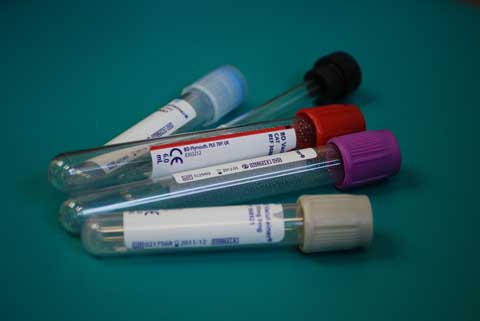
Alone in Your Gluten Free Journey
Are you alone in your gluten free journey? Are you unsupported by your family, friends, co-workers, doctor, and/or those closest to you?

It is never easy to change your diet. When someone, like a doctor tells you it is medically necessary, it is complex. You know you need to, but may feel forced into making that change. Now, don’t get me wrong, it can be just as difficult if you have come to this decision through other means. Not having support makes it much more difficult.
A Medical Diagnosis
With a medical diagnosis, you at least have the doctor and others in the medical field on your side. (If you have the right doctors.) There are support groups and so much information to be found. It is extremely helpful when you have a definitive answer to why you need to be gluten free, through having a diagnosis.
If you have read very much of what I write, you know how important I believe getting a diagnosis is. However, it isn’t always possible. I feel it is important to warn people, to not decide they are NOT celiac, if they haven’t been tested. You CANNOT know for certain that it isn’t celiac without full testing.

Testing
Another complication is that testing isn’t perfect. The damage to the intestines can be missed, even if you have had biopsies. Damage to the intestines happens in patches, so if they don’t get the right patch, the damage is not found. You may need to be tested more than once or twice. Having a firm diagnosis helps you to know exactly what you are dealing with.
Gluten free without an official diagnosis
This can be a hard route to go. Just because you test negative one time doesn’t mean that you are free and clear, especially if the disease is in your family. Family members of those with celiac, should have periodic testing whether they have symptoms or not.
If you are lucky and look really hard, you may find a doctor who understands that diagnosis can be tricky and some people suffer from gluten intolerance or other conditions.
Reasons people don’t get a firm diagnosis
- Not enough biopsy samples
- Too expensive to be tested/ no insurance
- If it is a child, doctors are very reluctant to continue testing without a positive blood test.
- There aren’t tests for intolerance. Everything else is ruled out, in order to get the diagnosis of non-celiac gluten intolerance.
- Many people don’t understand, other diseases also respond better to treatment, when gluten free: crohn’s and thyroid disease are two great examples.
Unsupportive Family Members
This can be harder than not being supported by your doctor. Not being supported by those you love makes this dietary change not only challenging but sometimes impossible!
I have seen parents, unsupportive of their own children who need to be gluten free and tell them figuring out is their responsibility. I’m talking about children 14 or younger. Or even worse, not believing they need to be gluten free and continuing to feed them gluten, thinking that a little bit won’t hurt.
I know spouses who tempt and torment the one needing to be gluten free; it is never fun to live with a bully! Sometimes they even go so far as to make it difficult or impossible for the spouse to eat gluten free. This is medical abuse, your life and health is being put at risk of other diseases and complications related to celiac disease.
The prescription for celiac and gluten intolerance is eating gluten free!
What Can You Do?
Medically:
- Don’t go gluten free before being tested.
- Keep looking for a doctor you can trust and who will listen to you.
- Learn what you can from accurate sources about gluten intolerance, celiac disease and any other medical issues you have.
- Always get copies of your blood work- be involved in your medical journey. You are your own advocate!
- Ask questions to doctors and nurses. Even if they get annoyed.
Dealing with family
- Stick to your diet regardless of what family is doing.
- Learn everything you can about being gluten free and how to do it safely in a shared kitchen.
- Cook and shop for yourself.
- Try to educate family members about your medical condition and how the gluten free diet is the prescription.
- *It is much harder if you are a child or a spouse in a controlling relationship. You may want to seek counseling, ask your doctor for help/resources, or do what you can to change your environment.
- Join a local support group. If you don’t have support at home or with your family, a support group can be especially helpful to talk about issues and difficulties.
- Many places have Facebook groups in different areas. There might be one near you or you might consider starting one up, so you can help and support one another. Example: Gluten Intolerance Group of Utah County (Gluten Intolerance Group is a national organization and trademarked. Do not use their name if you begin a group, unless it is with them and okayed by them.) or Gluten Free in Utah County
- Be consistent with your diet. If you don’t take it seriously, neither will anyone else.
Work and School
- Take your own food.
- Get a 504 plan with the school.
- Bullying isn’t tolerated in the work place and should be reported to HR. Most states have laws about work place bullying.
Move Forward

Especially if you have a diagnosis, stick to being gluten free even though it is difficult. Be your own advocate.
- Find a support group
- Look for on line resources, blogs, Pinterest pages, reputable groups and organizations.
- Many areas have gluten free pages on Facebook
- Try gluten free apps here’s my favorite.
- Look to help, support and mentor others. You will help yourself in the process and it is very rewarding.



 We know that the only way to make sure we don’t get sick is by always doing our own food at home! However, we need a break, want to socialize, go to events and experience new restaurants, just like everyone else does! This dietary restriction can be very isolating!
We know that the only way to make sure we don’t get sick is by always doing our own food at home! However, we need a break, want to socialize, go to events and experience new restaurants, just like everyone else does! This dietary restriction can be very isolating!

Recent Comments